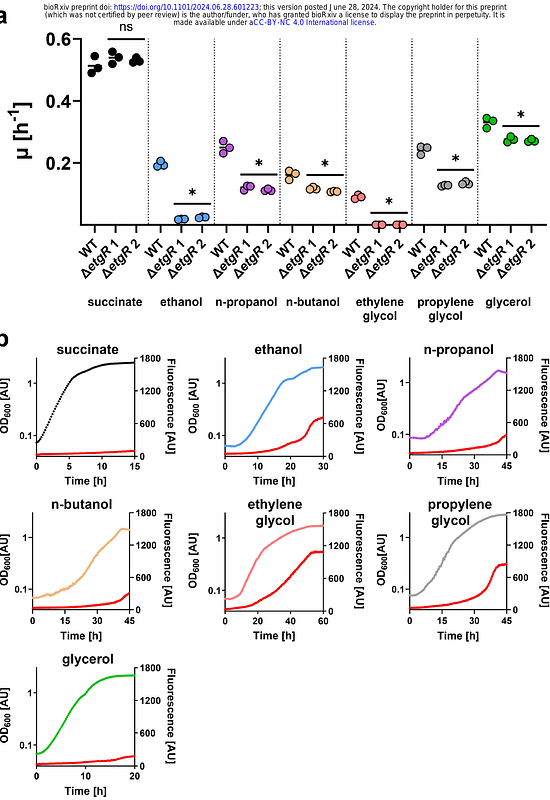Promiscuous NAD-dependent dehydrogenases enable efficient bacterial growth on the PET monomer ethylene glycol

Promiscuous NAD-dependent dehydrogenases enable efficient bacterial growth on the PET monomer ethylene glycol
Ren, M.; Li, D.; Addison, H.; Noteborn, W. E. M.; Andeweg, E. H.; Glatter, T.; de Winde, J. H.; Rebelein, J. G.; Lamers, M. H.; Schada von Borzyskowski, L.
AbstractEthylene glycol is widely used as antifreeze agent and monomer of the ubiquitous plastic PET (polyethylene terephthalate). Its global production amounts to more than 50 million tons per year, and it constitutes an environmental pollutant of increasing concern. Although it is generally accepted that bacteria oxidize ethylene glycol to use it as growth substrate, the enzymes involved in this process are not well understood. Here we show that the soil bacterium Paracoccus denitrificans is able to assimilate ethylene glycol efficiently via NAD-dependent alcohol and aldehyde dehydrogenases. Using comparative proteome analysis, we identify a previously unknown gene cluster that is strongly expressed in the presence of ethylene glycol. We report the kinetic parameters and cryo-EM structures of EtgB and EtgA, the key enzymes encoded by this etg gene cluster. These novel biocatalysts pave the way for more efficient biotechnological conversion of ethylene glycol. We furthermore show that the transcriptional activator EtgR controls expression of the etg gene cluster. Directed evolution of P. denitrificans on ethylene glycol results in faster growing strains, which is enabled by increased activities of EtgB and EtgA. Bioinformatic analysis reveals that the etg gene cluster and variants thereof are widely distributed among Proteobacteria, suggesting a previously underappreciated role of NAD-dependent dehydrogenases in microbial ethylene glycol assimilation.


